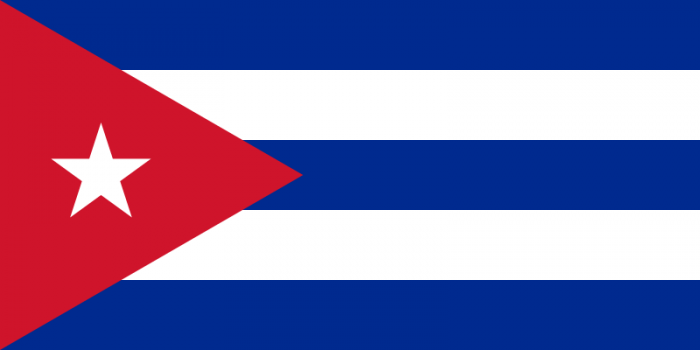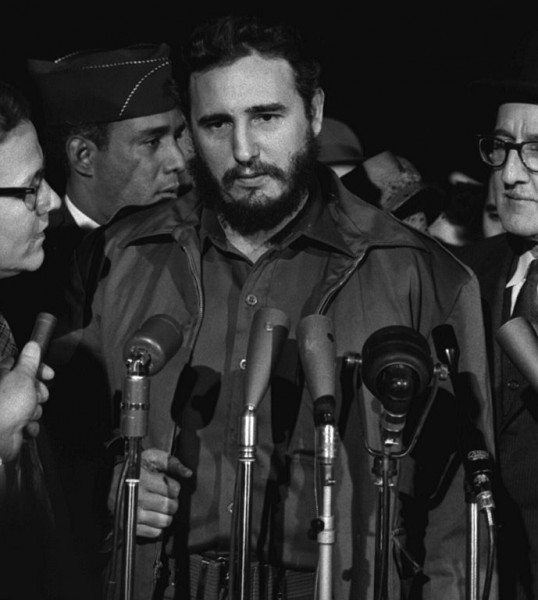There is one nation the U.S. government fears more than any other. It’s controlled by a single party, the Communist Party, that has established a dictatorship (not of proletarians, but of bureaucrats) after defeating a U.S.-backed tyrant with the help of countryside peasants over half a century ago. Its relations with the United States have been frosty ever since, with Washington viewing this red menace as a threat to U.S. hegemony. For decades, groups the likes of Amnesty International have condemned what are purported to be habitual human rights violations committed by the state. Official censorship under the Communists is nothing if not routine. True democracy is openly opposed. Dissenters are thrown in prison to rot.
I’m talking about China of course, though were I only speaking of the Western Hemisphere, Cuba should immediately come to mind. For besides being Communist states whose names begin with the letter “C,” China and Cuba both stand on comparable terms with the United States. However there’s one glaring difference between the two, a distinction that underscores the hypocrisy of U.S. foreign policy: whereas one of the two countries is receiving a state visit by the president of the United States right now, the other hasn’t had diplomatic relations with the U.S. government in over 50 years.
In fact, not only are Washington and Havana not communicating in any meaningful sense of the word, the United States has imposed an embargo on the island—a trade ban even older than President Obama himself. Thanks to a profusion of officials trapped in the Cold War, the United States insists on continuing its starvation of Cuba until either the Cuban people cast off socialism or the last Castro stops breathing; or both, as Washington prefers.
Many would argue that the fear and animosity stems from 13 tense days back in October 1962. Obama was just a couple months old when the Soviet Union shipped nuclear missiles to Cuba in response to U.S. missiles in Turkey aimed at the Soviet Union. Fortunately neither side was willing to travel down the road to nuclear holocaust, and both sides backed down. But while relations between the two superpowers began to thaw after the Cuban Missile Crisis, Uncle Sam has proven unwilling to forgive Cuba for its supporting role in the drama.
Even still, the U.S. government isn’t resentful over what happened in 1962 as much as what happened the year before, when the CIA orchestrated an invasion of the island that attempted to overthrow the Communist government. As most readers will know, the Bay of Pigs Invasion ended up being a monumental embarrassment for the United States, which was forced to hand over $53 million worth food and medicine to Castro in exchange for the captured proxies.
Putting the immediate Cold War rationale aside, the U.S. government’s reason for planning a violent coup in Cuba is the same reason it had supported and has continued to support violent coups in other countries throughout the Western Hemisphere: that is, to see to it that governments under the U.S. sphere of influence remain under its dominion. And why Washington has bullied the Cuban government for the past 50-plus years isn’t a mystery to anyone who’s seen The Godfather, Goodfellas or The Sopranos. It’s the classic mafioso M.O centering on the maintenance of power.
The Mafia dominated cities like New York and Chicago, where one crime family controlled one part of town while another controlled another. Every person and business living in a family’s territory was said to be in the family’s jurisdiction and under its sphere of influence, the main result of this being that many people were harassed and extorted. Anyone who didn’t submit to the crime family’s authority was made to suffer, either until they finally gave in or were destroyed.
The United States, as a world power, behaves much like a crime family does. Its territory is the Western Hemisphere —known dismissively as “America’s backyard”— the countries of which are harassed and extorted by the United States under the rubric of neocolonialism. China would be another crime family in this scenario, whose own sphere of influence is Asia. Neither the United States nor China want to risk an all-out war with the other, just as the crime families of old avoided bloody street wars—though China being the United States’ biggest creditor may have something to do with keeping the peace. The two have instead sought to grow their influence in the other’s territory, as demonstrated by Chinese President Xi Jinping’s recent tour of Latin America following President Obama’s fifth tour of Asia.
Like all of the other nations existing inside U.S. territory, the Cuban government has been muscled by the United States for all of its recent history and is being made to suffer until it either submits or crumbles. Hence why the president of the United States is off to visit a Communist leader halfway around the world while he continues to ignore the Communist leader 90 miles off the Floridan shore.
The Don demands total deference, but Castro refuses to kiss the ring.
***
Hector Luis Alamo is a Chicago-based writer. You can connect with him @HectorLuisAlamo.




